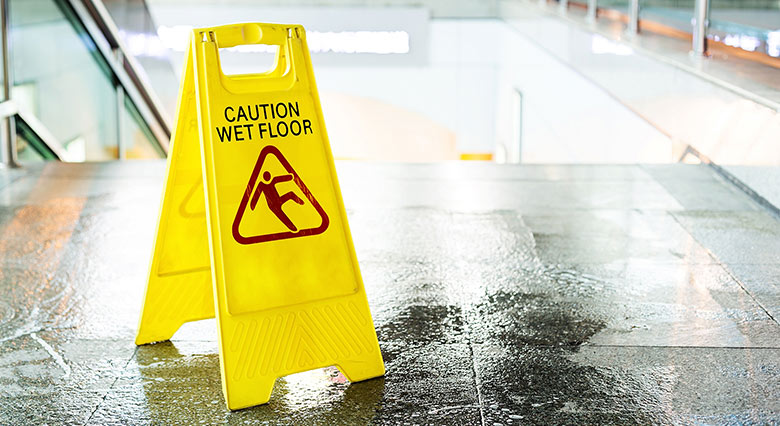Nursing Home Slip and Fall Injury Lawyers
Every resident of a nursing home should receive a complete evaluation upon arrival that provides an accurate picture of their physical and emotional health. Nutrition and medication requirements should be included, as well as any current medical conditions needing monitoring or treatment. One of the most important parts of a nursing home resident’s care plan should include whether or not they are at risk for falls.
Many elderly residents have challenges that could lead to greater fall risk, including:
- Strengh
- Mobility
- Vision
Additionally, some seniors suffer from neurocognitive diseases, such as Alzheimer’s disease or dementia that could lead to a greater sense of confusion causing them to be at risk for falls.
Finally, some elderly residents may take medications that have side effects such as drowsiness or dizziness that would make them more susceptible to falling.
Whatever the reason, a nursing home has the duty and obligation to ensure that those seniors with conditions that would make them more prone to falls receive supervision and attention for their own protection and safety.
Nursing Home Responsibility and Liability
Nursing homes have an obligation to provide as much care as possible in order to eliminate as many possible risks of slips and falls in a nursing home as possible. Not every single fall is preventable, however, research shows that a significant number of falls in nursing homes result from either nursing home negligence or abuse. Some of the ways that a nursing home would remain liable and legally responsible for injuries suffered from an elderly resident’s fall may include the following:
- Failure to provide adequate handrails, guards, other assistance for seniors to hold on to as they move through their room or the facility.
- Failure to keep floors safe from dangers such as loose rugs, wet floors, poorly lit areas, or loosened tiles.
- Failure to create or follow a care plan for an elderly resident that has mobility issues, or would be more prone to a slip and fall injury.
- Failure to create or follow a care plan for an elderly resident that has mobility issues, or would be more prone to a slip and fall injury.
- Failure to provide consistent monitoring and supervision of all residents.
- Failure to assist residents from their bed to a chair when they require such assistance, resulting in a fall.
- Failure to provide proper nutrition and hydration, causing residents to search out food and water on their own, leading to falls.
- Failure to assist residents in going to the restroom, causing residents to attempt to use the facilities on their own resulting in falls.
- Failure to properly train and educate the nursing home staff members regarding how to properly move residents, or care for those who are at greater risk for falling.
- Failure to administer medication correctly, leading to serious side effects such as confusion, dizziness, or drowsiness.
- Failure to follow appropriate medical protocols when a slip and fall accident does occur, so that the elderly resident receives immediate medical evaluation and treatment.
Injuries From Nursing Home Falls
The Centers for Disease Control and Prevention research shows that nearly 1,800 elderly residents die in nursing homes every year from falls that are oftentimes preventable. Many residents that do not die suffer from serious injuries that can result in hospitalization, surgeries, loss of function, and a debilitating fear of falling again leading to anxiety, fear, social isolation, and depression.
Contact an Experienced Nursing Home Abuse Attorney Today
If your elderly loved one suffered injuries related to a fall in a nursing home, it may be the result of nursing home neglect or abuse.
Contact the experienced nursing home abuse attorneys at Dallas & Turner, PLLC to help you understand how you can receive compensation for the damages resulting from your loved one’s injuries. While not every fall in a nursing home is preventable, in many cases, they are directly related to a lack of supervision and assistance.
Schedule a FREE consultation with our experienced Kentucky attorneys today by calling 859-630-0666, or use our FREE online case submission form.

